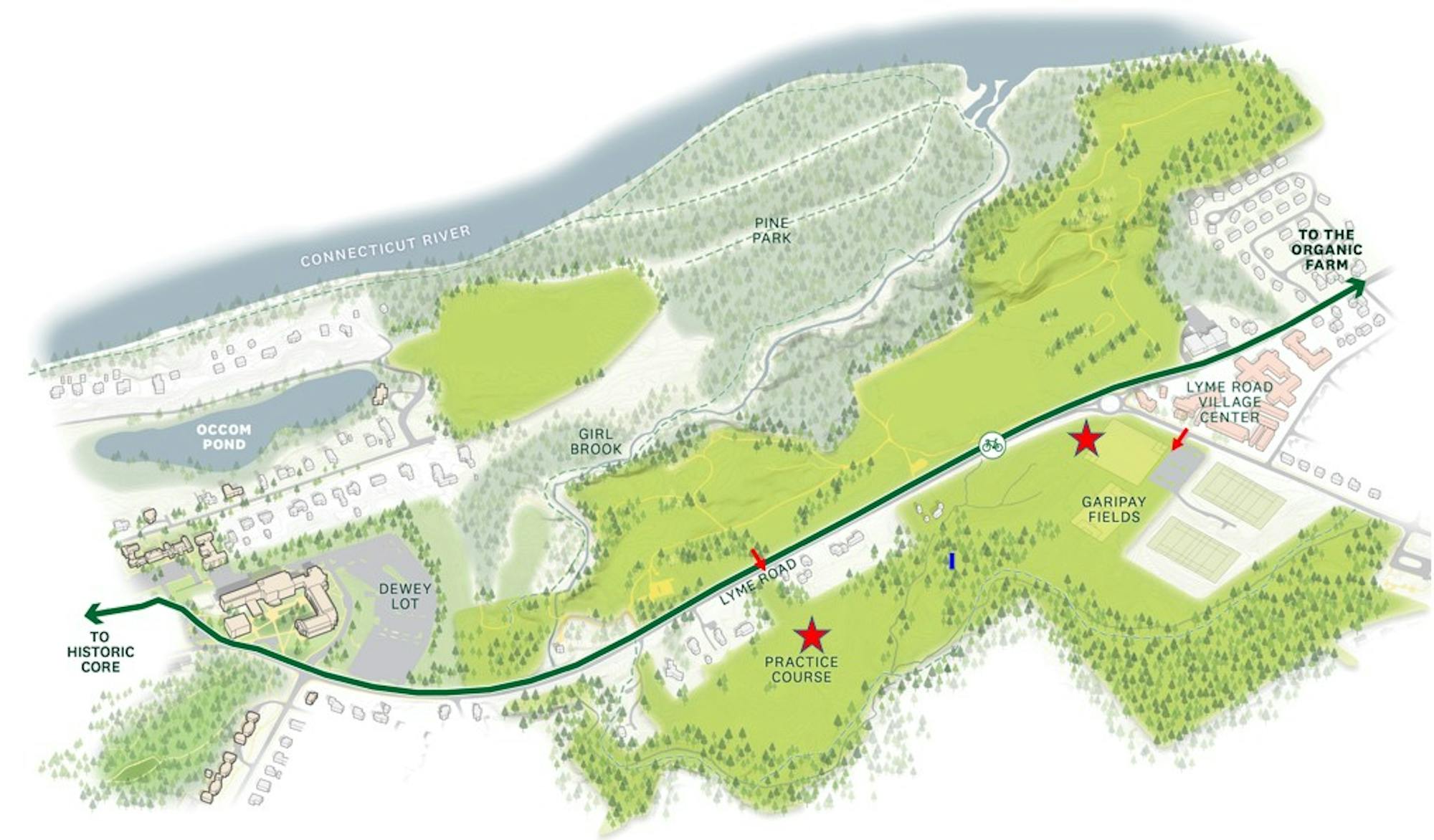Updated 11 p.m., Feb. 24, 2022.
At Monday’s annual winter term faculty meeting, faculty members and administrators voted 89-4 to pause further development of the proposed new undergraduate housing on Lyme Road — a plan proposed in November 2020 and rolled out in January that is intended to create more undergraduate housing amid a housing shortage and planned renovations for a number of undergraduate dorms.
According to a Feb. 21 College press release, the administration will seek “further engagement sessions” from students, faculty and community members regarding the project’s impact on traffic, transportation and disruption to undergraduate students’ experience and community recreation spaces. The College is expected to review the project plans through the end of May.
Government professor Michael Herron — who initiated the vote — said that the Lyme Road plan did not “seem to fit Dartmouth’s mission,” noting that many faculty were worried about the impacts of distant housing on the “intellectual life” of students.
“There was a general sense in the committee that the plan, as we had presented to us, didn’t seem to fit Dartmouth’s mission as a primarily undergraduate institution, and the location of the dorm doesn’t really fit the way that I think the faculty view the campus and the value of the campus in terms of the intellectual life of the students who attend Dartmouth,” Herron said.
Herron added that the “inexpensive” and quick nature of the construction project did not “fit the institution.”
“I don't think that really resonate[d] with the faculty,” he said. “And for good reason, because I don't think being inexpensive and fast is the way you build an institution.”
In January, the College announced that new undergraduate housing on Lyme Road would be located in Garipay Fields, a plot of land located 30 minutes north of Baker Library by foot. The proposal drew criticism from the Garipay Neighbors Association, who in a Jan. 13 letter to the College raised their concerns about the environmental impacts of the dorm construction, in addition to disruptions to outdoor recreational activities such as the Ford Sayre Nordic Ski Program.
English professor and committee on priorities chair Colleen Boggs — who was present at the faculty meeting — wrote in an emailed statement that the Lyme Road proposal raised “significant concerns” regarding the undergraduate student experience, such as the long distance from campus and the potential negative impact on “students’ connection to the vibrant living-learning communities.” In addition, she wrote that she appreciates the College administration for “listening to these concerns” and for creating plans to consider alternatives “in consultation with the Committee on Priorities and other stakeholders.”
Anthropology department chair Jesse Casana said he believes that the Lyme Project proposal was “not a good idea,” noting that the proposal ran against some of the principles of the Dartmouth Strategic Master Plan announced in July 2021. In the Dartmouth Strategic Plan, the College proposed several projects, such as the construction of new undergraduate dorms, sustainable infrastructure and increased green spaces.
Casana said that although the College noted the Dartmouth Strategic Master Plan is not “prescriptive,” he agreed with its principles, such as a commitment to having a walkable, central campus core and the maintenance of green spaces. As a result, Casana – who seconded the motion brought by Herron – said that he disagrees with the proposal.
“I think that we need to do the thing that is not faster and cheaper, but that is better and that conforms with our own stated principles and priorities,” Casana said.
According to Casana, there were around 130 people present at the winter term meeting, which includes voting and non-voting members. When the Lyme Road project came up on the agenda, Casana said that senior administrative officials spoke about reasons to support the project.
Afterwards, Casana said that around 15 faculty spoke “quite strongly” against the proposal. After Herron drafted a motion, Casana seconded the motion and a vote was called.
According to Casana, the result was a “pretty resounding message from the faculty.”
“Obviously, 89 of my colleagues apparently agree,” he said. “If the response from the community is any gauge, I’d say that [we’re] in good company there.”
College spokesperson Diana Lawrence wrote that following the faculty vote, the College will continue to look into the Lyme Road proposal, specifically “relative to the student experience and programming, traffic and transportation,” in addition to considering how to support outdoor recreation. When asked whether the College would reconsider the construction of apartments on Lyme Road, Lawrence wrote that the pause in the project is intended to “further understand these critical components,” which could lead to changes in the project.
However, the College “still intend[s] to move forward with building more housing,” Lawrence wrote.
Executive vice president Rick Mills did not respond to requests for comment by the time of publication. Vice president of campus services and institutional projects Josh Keniston did not respond to multiple requests to comment. Dean of the faculty of arts and sciences Elizabeth Smith declined to comment, noting that she did not chair the winter term meeting.
This article has been updated with comment from Michael Herron.
Daniel Modesto ’24 is the News executive editor. He is from Brooklyn, New York, and is a Native American and Indigenous Studies major modified with Latin American, Latino and Caribbean Studies.




